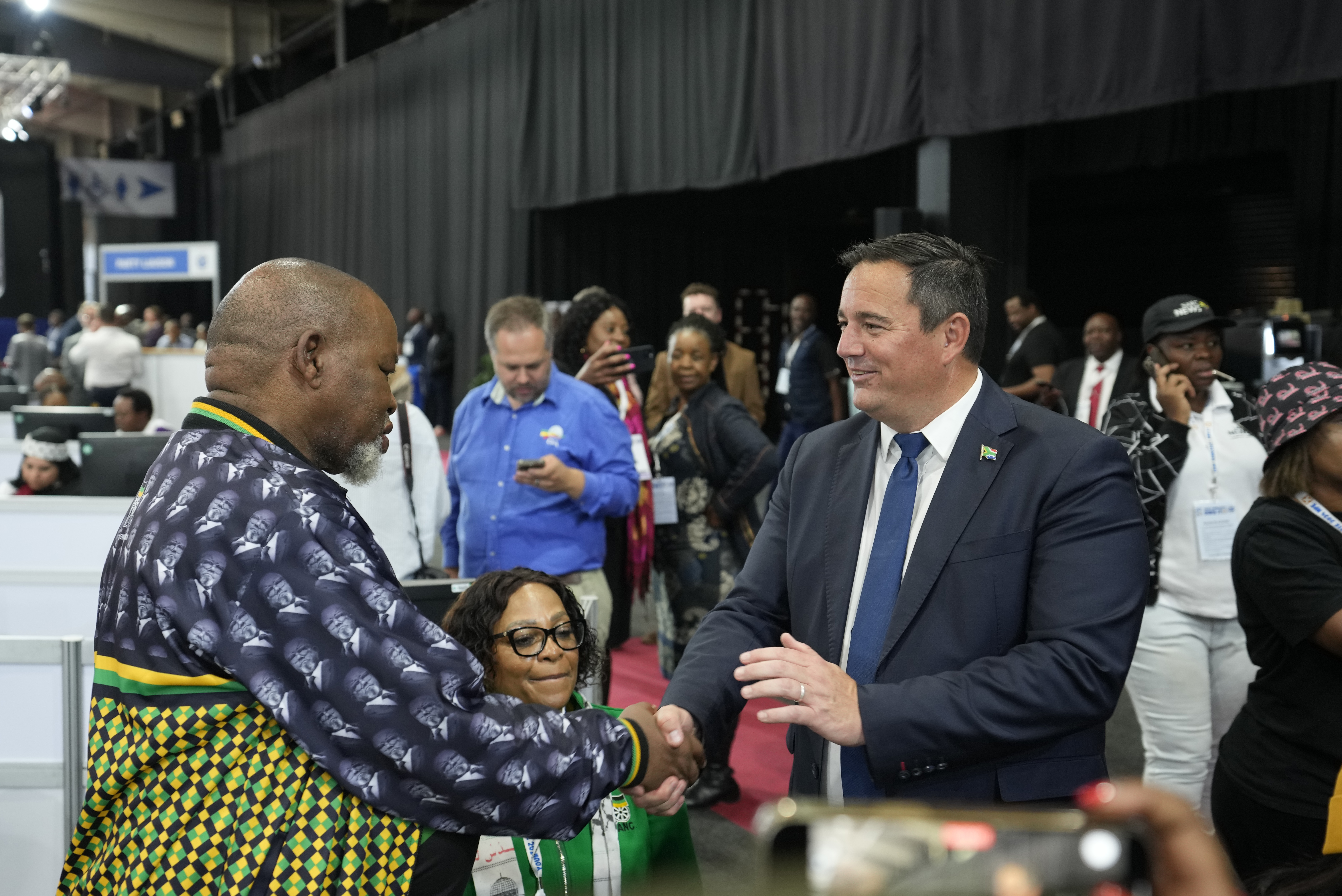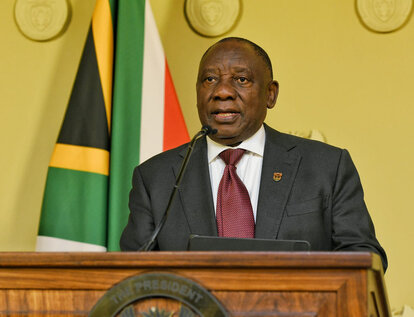South Africa
Why the former archenemies could help the country move forward

Der Vorsitzende der bisherigen Oppositionspartei Democratic Alliance, John Steenhuisen, rechts, schüttelt dem ANC-Vorsitzenden die Hand.
© picture alliance / ASSOCIATED PRESS | Themba HadebeSouth Africa already has experience with governments of national unity: the first democratically elected government in post-apartheid South Africa 30 years ago. It was led by the African National Congress (ANC) under President Nelson Mandela and formed a coalition with the National Party (NP), which represented the interests of a right-wing conservative white population, and the Inkatha Freedom Party (IFP), which fights for the Zulu ethnic group at a political level. Now the time has come again. President Cyril Ramaphosa of the ANC announced a unity government after two weeks of intensive negotiations with representatives of the ten parties.

Der südafrikanische Präsident Cyril Ramaphosa spricht während einer im Fernsehen übertragenen nationalen Ansprache. Dabei gab er die Zusammensetzung seines neuen nationalen Exekutivkabinetts bekannt.
© picture alliance / Xinhua News Agency | Government Communication and Information SystemBorn out of necessity this time
While Nelson Mandela once created the Government of National Unity as a symbolic act of reconciliation, although the ANC could have governed alone, the party was now forced to enter into a coalition for the first time. This was because the ANC lost its absolute majority for the first time in these elections, which were described as "historic", and only received 40 per cent of the vote. It was a political earthquake. The ANC's most important partner in government is the liberal Democratic Alliance (DA), which received around 22 per cent of the vote and was able to maintain its absolute majority in the Western Cape province. The DA has its roots in the white parliamentary opposition to the apartheid regime. Other parties in the alliance only received between 0.18 (Hope Party) and 2.06 per cent (Patriotic Alliance) of the vote. The IFP, mainly based in the province of KwaZulu-Natal, is also back.
Struggle for cabinet posts
After President Ramaphosa was confirmed as president with the votes of the DA and the IFP, the strongest parties and archenemies ANC and DA in particular competed for cabinet posts. The DA received four ministerial posts and four deputy ministers, including in the important portfolios of Home Affairs, Communications and Digital, Finance, Trade and Industry as well as Electricity, Energy and Water.
The DA's ministries are central to improving everyday life
These are fewer than the ten ministries that the DA would be entitled to according to its share of the vote. However, the departmental responsibilities offer the DA the opportunity to prove that it can bring about the improvements demanded by voters in the areas of labour market policy, competitiveness, services of general interest and the fight against corruption. South Africa has been suffering from power and water cuts for years. Corruption, mismanagement and one of the highest unemployment rates in the world have undermined the people's faith in the ANC.
The opposition is combative
The desired change will not be easy. The newly founded, radical left-wing splinter party of the ANC, Umkhonto we Sizwe (MK) under former President Jacob Zuma, received almost 15 per cent of the vote, while the Marxist-influenced Economic Freedom Fighters (EFF) received a further 9.5 per cent. The new opposition leader in parliament, Judge John Hlope, was removed as Chief Justice of the Western Cape Province only four months ago due to allegations of corruption. He labelled South Africa's legal system a "shitstem", a "shitty system" that had been imposed on the country from outside. The new government can therefore brace itself for destructive headwinds in parliament. The governments in the important provinces of Gauteng and KwaZulu-Natal will also have to contend with considerable resistance from MK and EFF.
Trust is at an all-time low
The fact that the ANC has decided against a coalition with the extremist parties MK or EFF gives hope that there is still a genuine will for reform and renewal in the party. This is also urgently needed, as trust in almost all state institutions is at an all-time low. Positive change is only possible through more transparent and efficient governance and an uncompromising approach to the omnipresent corruption.
